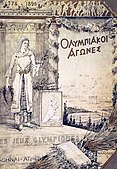User:Allard
Hello and a warm welcome to all my fellow Wikipedians. How nice of you to drop in to see who I am!
Morning>
Wikipedia & me:
[edit]How I discovered Wikipedia, I do not remember. But from being a reader I slowly became a contributor. Although I don't work that much on Wikipedia I do see myself as a Wikipedian. I don't go searching on Wikipedia what I can edit next, I edit what I find and want to do. This means I add and mainly improve a lot of small things and only rarely I make large edits.
My work:
[edit]Articles I've started on Wikipedia:
- Fort Knox Bullion Depository
- Animals are Beautiful People
- Template:David Attenborough Television Series
- Template:Malta Islands
Images I made for Wikipedia:
 Dutch lower house as from 2006
Dutch lower house as from 2006 New image of the Netherlands Air Force Roundel
New image of the Netherlands Air Force RoundelMap on membership of the League of Nations
United Nations membership map
 Improved image of the British Helgoland flag
Improved image of the British Helgoland flag New image showing the current flag of Hel(i)goland
New image showing the current flag of Hel(i)goland
Article guide:
[edit]A list of articles worth looking at, if one can find them:
- Antidisestablishmentarianism
- Ball's Pyramid
- British Isles (terminology)
- Eadweard Muybridge
- Gunpowder Plot
- Horace de Vere Cole
- Humphrey (cat)
- Islomania
- List of countries by date of nationhood
- List of flags
- List of people who died on their birthdays
- List of regnal numerals of future British monarchs
- List of unusual deaths
- Northwest Angle
- Quadripoint
- Racetrack Playa
- Rule of tincture
- San Gimignano
- Transcontinental country
- Undivided India & Partition of India
- Voyager Golden Record
- Web colors
- Winchester Mystery House
And there's always the Random article
And to all citizens of the European Union, please read this: Oneseat.eu
News
[edit]- In cycling, Tadej Pogačar (pictured) wins the Tour de France.
- Incumbent U.S. president Joe Biden withdraws from the 2024 presidential election.
- In golf, Xander Schauffele wins the Open Championship.
- General secretary and former president of Vietnam Nguyễn Phú Trọng dies at the age of 80.
Selected anniversaries
[edit]July 26: Independence Day in the Maldives (1965), Kargil Vijay Diwas in India
- 1759 – French and Indian War: Troops led by French brigadier general François-Charles de Bourlamaque attempted to blow up Fort Carillon, near present-day Ticonderoga, New York, rather than defending it against approaching British forces.
- 1887 – L. L. Zamenhof (pictured) published Unua Libro, the first publication to describe Esperanto, a constructed international language.
- 1936 – The Canadian National Vimy Memorial, dedicated to Canadian Expeditionary Force members killed in the First World War, was unveiled in Pas-de-Calais, France.
- 1953 – The Battle of the Samichon River, the last engagement of the Korean War, ended a few hours before the signing of the Korean Armistice Agreement.
- 2007 – After widespread controversy throughout Wales, Shambo, a black Friesian bull that had been adopted by the local Hindu community, was slaughtered due to concerns about bovine tuberculosis.
- Winsor McCay (d. 1934)
- Betty Davis (b. 1944)
- Liz Truss (b. 1975)
- Ed Gein (d. 1984)
Did you know...
[edit]- ... that a Kubrick stare (example pictured) can be "invasive" and "troubling"?
- ... that Chloë Farro, María Sara Grippoli, Edda Hannesdóttir, Viren Nettasinghe, Oyuntsetsegiin Yesügen, and Lê Đức Phát are flagbearers at today's Olympic opening ceremony?
- ... that silver dimes kept a Tennessee TV station on the air?
- ... that agronomist Oliver Golden remained in the Soviet Union after his delegation of cotton experts returned to the United States?
- ... that the Guinness World Record holder for the world's largest menorah, in Manhattan's Grand Army Plaza, is smaller than a menorah in Brooklyn's Grand Army Plaza?
- ... that Olympic swimmer Camil Doua represents a country in which "the only existing swimming pools are those in hotels"?
- ... that there is a rare circumstance in which Jewish soldiers are allowed to abandon kosher dietary laws?
- ... that physiotherapist Alison McGregor was one of the Olympic flame torchbearers from Imperial College London in the build-up to the London Olympic Games in 2012?
- ... that NATO was once targeted by a group of "gay furry hackers"?
Today's featured article
[edit]The 1896 Summer Olympics were the first international Olympic Games held in modern history. The International Olympic Committee was established in 1894 by a congress organized by Pierre de Coubertin in Paris. The committee appointed the Greek capital Athens as the host city, and the games took place from 6 to 15 April 1896. According to the committee, 14 nations took part, and 241 male athletes competed. The participants were all European, or living in Europe, with the exception of the United States team. More than 65 per cent of the competing athletes were Greek, and Greece won the most medals overall, 47. The athletic highlight for the Greeks was the marathon victory by their compatriot Spyridon Louis. The most successful competitor was the German wrestler and gymnast Carl Schuhmann, with four victories. The 1896 Olympics were regarded as a great success, with the largest international participation of any sporting event to that date. (Full article...)











